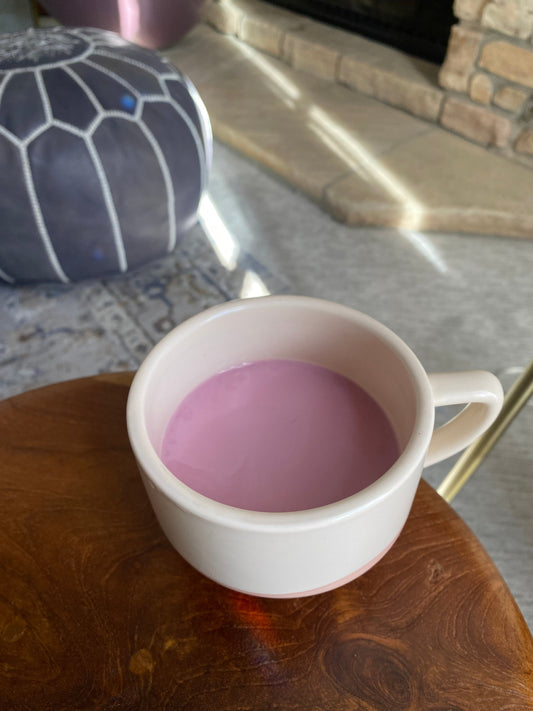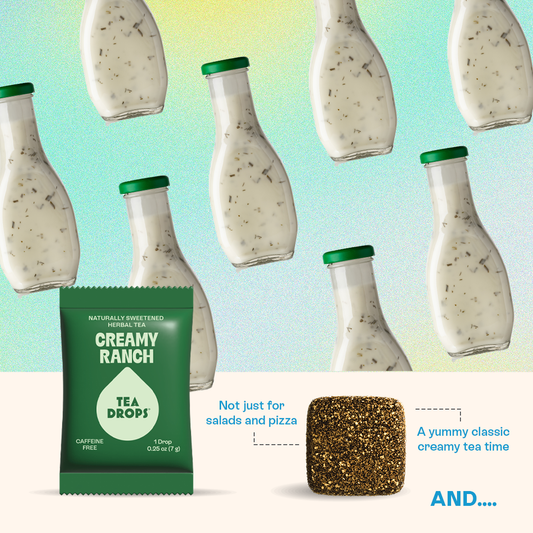Whether you drink green tea regularly or have never tried it, you could probably benefit from a daily cup or two. In fact, we all could. Read on to discover some surprising benefits of green tea, according to science, and why your daily routine (and well-being) could use the boost. Green tea drinkers everywhere swear by the health benefits of green tea.
Green tea, oolong tea, and even black tea all come from the same plant – the Camellia Sinensis, the only difference is how the picked tea is processed afterward. To make green tea, the leaves are steamed before being pan-fried and then dried. Because green tea is made from unoxidized leaves it means that it is less processed than the other two kinds of tea. This brings even more benefits to your health and means that green tea boasts a high level of antioxidants, flavonoids, and all the good stuff you need. Green tea is hugely popular in both Chinese and Indian medicine and we know that because of its bioactive compounds it is so much more than a thirst quencher.
A Brief History of Green Tea
Before we dig into the benefits of green tea, let’s take a look at its beginnings. Green tea has been around for thousands of years. Experts aren’t sure exactly when or how it was discovered, but many stories take us back to 2737 B.C., China, and an accidental sip.
According to legend, the Chinese Emperor Shennong mistakenly drank a glass of water that contained a boiled, dead tea leaf. The emperor instantly loved the flavor, and hence, green tea was born.
From that point, green tea leaves made their way from royalty to the general public, from China to Europe and eventually, America. And it’s still popular today—we consume over 600,000 tons of green tea every year, according to the World Green Tea Association.

Green Tea Benefits
So why is green tea so popular in the world of wellness? It all comes down to the health benefits of green tea—and there are a lot of them making it one of the healthiest options for tea consumption. Not only is green tea considered to be a superfood thanks to its wealth of antioxidants but it also goes to town on keeping your whole body in a healthy balance. From heightened brain activity to glowing skin and a strong heart, let’s take a look at how green tea can help us be healthier and happier.
Revs Your Metabolism
If you’re looking to get in shape, combining green tea with exercise may help. How? One word—antioxidants. Studies suggest that antioxidant-rich foods and supplements can help with weight loss and boost your metabolism.
For example, in one study, researchers manipulated the diets of two groups of obese people—one group regularly drank green tea and the other didn’t. All other aspects of their diets were the same. The results? Those who consumed green tea lost more weight than those who didn’t.
Researchers pointed to green tea’s ability to increase participants’ energy expenditure (i.e., how many calories they burned) as one reason for the weight loss.
However, there aren’t many studies out there looking at long-term weight loss as it connects to green tea. In other words, stay active and eat healthily, and consider adding a cup or two a day to boost your results.
May Reduce Cancer Risks
One of the most widely touted benefits of green tea is its connection to cancer. Some studies have found that drinking green tea can help treat a wide range of cancers, including breast, colorectal, lung, and esophageal. Green tea contains something called EGCG which stands for epigallocatechin gallate. While quite a mouthful, this active substance is the main catechin in green tea and also one of its most potent antioxidants.
Many researchers believe that polyphenols, micronutrients found in high levels in green tea, can attack and even kill cancerous cells along with reducing the risks in the first place for oxidation and free radicals to damage healthy cells.
While green tea is certainly packed with polyphenols and health-boosting benefits, we need more rigorous studies before we can say for certain if and how green tea can help prevent cancer, says the National Institutes of Health.
In the meantime, it’s worth noting that countries with high consumption of green tea tend to have a lower risk when it comes to their rates of cancer. And while there are likely a lot of reasons for this, it’s enough for us to add green tea to our daily routine.
Boosts Heart Health
Carving out a few minutes for a tea break might improve your heart health in significant ways. Here’s how:
-
Reduces your risk of a heart attack: One study that followed Japanese participants for over 11 years found that those who drank five or more cups of green tea per day were 26 percent less likely to die of cardiovascular disease, a heart attack, or stroke than those who didn’t.
- Helps to lower cholesterol: Green tea contains polyphenols called catechins, which have been shown to reduce LDL cholesterol. And that’s a good thing because high LDL cholesterol levels increase the risk factors that can lead to a heart attack.
- Regulates blood pressure: In a meta-analysis of 13 studies about the effects of green tea on blood pressure, researchers concluded that green tea can significantly reduce both systolic and diastolic blood pressure.
In short, sip away—your heart will thank you for it.
Great for Overall Physical Healthy
Aside from heart health, green tea may help prevent and treat some common health conditions, such as diabetes, arthritis, and the flu. It might even help you live longer! Let’s take a look.
- Diabetes: Some studies show that green tea can help those with type 2 diabetes, while others aren’t as promising. For example, one study found that those who drank five or more cups of green tea per day had a 33 percent reduced risk of developing type 2 diabetes. Results from other studies weren’t as consistent, suggesting that we need more conclusive research to be able to say for certain if green tea helps with diabetes.
- Arthritis: Research suggests that the properties of green tea may help with the inflammation and joint pain associated with arthritis.
- Colds and the flu: There are promising results connecting green tea with flu and cold prevention, found in one research review, though we need more studies to be sure.
- Longevity: Because green tea can help reduce your risk of heart disease, it’s not a surprise that frequent drinkers tend to live longer. In fact, people who drank five or more cups of green tea per day had a reduced rate of dying over an 11-year period, according to a study.
Healthy Hair and Teeth
We all want to be healthier, but most of us wouldn’t mind looking better too (guilty). That’s where green tea comes in—it can boost our smiles and our hair health.
- Teeth: We know that coffee and other dark drinks can stain our teeth. One big benefit of green tea? It doesn’t. Aside from keeping our smiles white, green tea may help prevent cavities, bad breath, and gum disease, according to a 2016 research review.
- Hair: Using green tea products on your hair might help you grow stronger, fuller locks. According to studies, certain compounds in green tea can stimulate hair growth. To make your own green tea rinse, brew green tea, let it cool, and then massage your scalp with it. Leave it for ten minutes and then rinse with cool water.
Benefits Your Brain
One of the most proven benefits of green tea is its ability to boost your brain. From improving your mental health to increasing your cognitive functioning, drinking green tea is an easy way to be sharper and feel better.
- Stress: Drinking tea can help you stress less, according to research. One study found that those who drank five or more cups of green tea per day were 20 percent less likely to feel stressed. And that result held even after they factored in other stress-busting factors, like social support.
- Depression: Some studies suggest that green tea can help with depression. For example, a study of older Japanese individuals found that depression rates were lower for those who drank high amounts of green tea. Similarly, another study found that green tea boosted serotonin and dopamine levels, chemicals that are said to fight depression.
- Cognitive function: Green tea has caffeine, though not enough to make us jittery the way that coffee can. It also contains an amino acid called L-theanine that when combined with caffeine, can make our brains function better, suggests research. Another of the protective effects of improved brain function means potentially lower risks of developing Parkinson or Alzheimer like ailments.
Improves Skin Health
Having problems with your skin—puffy eyes, acne, sun damage? It turns out that green tea can help with a whole bunch of skin-related issues.
- Puffy eyes, dark circles, and aging: There is evidence that green tea improves the appearance of the skin. For example, one 2005 study found that women who both drank green tea and applied it to their skin had greater skin elasticity when compared to women who didn’t. Additionally, the caffeine in green tea can reduce puffiness and help treat dark circles. To try it, soak two tea bags, put them in the freezer for about half an hour, and then place on your eyes.
- Acne: If you’re struggling with acne, adding green tea to your skincare regimen is a good idea. A 2016 study found that individuals with acne who took green tea extract for four weeks showed significant decreases in pimples on their noses, chins, and mouth area.
- Sun damage: Using products that contain green tea extract might help reduce sun damage, one study found.
Helps Regulate Blood Sugar Levels
Want to balance out your blood sugar levels so you don’t feel like you are forever going to crash? Green tea is always here to help.
There are over seventeen studies that have delved deep into the relationship between green tea, blood sugar, and insulin, and all point to good things for those who are sipping the light and joyous green tea.
Not only does green tea help reduce fasting blood sugar levels but it also works across the board to reduce the risks that put someone in the bracket for having to deal with diabetes.
Anti-inflammatory
From battling skin conditions to pain in the body, green tea can help you to fend off all kinds of inflammation. Thanks to the fact it contains EGCG, this catechin has been proven to suppress cytokines and enzymes that lead to inflammation. For all those out there who are struggling with IBS symptoms or any kind of chronic inflammation, you can breathe a sigh of relief.
Increases Fat-Burning
Green tea may feel like it's more associated with the yin phase of life rather than the yang, but this active little leaf is way more active than you would think. Green tea has been known for boosting metabolism and turning up the dial when it comes to fat burning, both of which are essential tools for those who are medically seeking solutions to obesity.
While the studies can be a little inconsistent and circumstance based, we also know that caffeine has an impact turning fatty acids into energy so the combined force of green tea and its small dose of caffeine could help improve physical performance and help your body shift into a different mode.
Boosts the Immune System
Give your immune system a big boost with the simple element of glorious green tea. In a time when everyone is a little more health conscious, keeping your immune system riding high feels more important than ever.
The antioxidants in green tea are ripe with antibacterial, antiviral, and antifungal properties all of which is something your immune system is sure to love. Another added benefit of green tea? It can also act as a prebiotic which boosts your gut health too. The gut is one of the most important centers of our overall health and well-being and benefits everything from mental health to immunity.
Prevents Bone Loss
Want strong and healthy bones that don’t crumble with every fall? Say hello to your new bone doctor – green tea. Yup, green tea is said to improve bone density and reduce the risk of fractures thanks to all those lush antioxidants.
Studies helped to showcase that there was almost certainly a connection between green tea (and other foods full of polyphenols) and bone health. It was decided that the polyphenols helped to prevent damage to bone cells along with limiting inflammation, which led to healthier bones able to withstand the test of time.
Associated With a Longer Life
For those who dream of immortality and sticking around at least to see flying cars take to the sky, green tea could be just the ticket. Tests have shown that those who sup on green tea actually have cells with a younger biological age than those who don’t tend to drink it.
One of these studies unraveling the mystery between longer life and green tea found that older adults who sipped the most green tea were 76% less likely to die than their non-drinking counterparts during the six-year study.

Frequently Asked Questions About Green Tea
Does decaf green tea have the same benefits?
While a cup of decaf will skip out the caffeine for those who are sensitive, the process of switching the tea to decaf can also take away some of the polyphenols. While your decaf green tea will still be swimming in antioxidants and other good stuff it may not be as potent as green tea in its original form.
Does matcha have the same benefits as green tea?
Matcha is a variety of green tea meaning that it comes loaded up with all the same goodness. In fact, matcha can have even more antioxidants in it than traditional green tea as it is more concentrated and uses the whole of the leaf.
How much caffeine is in green tea?
Green tea has roughly about 20 milligrams of caffeine in it. You can compare this to coffee which has 100 milligrams and even black tea which has around 55 milligrams.
How much green tea do I need to drink for health benefits?
For those who want to top up on the health benefits of green tea, you are best aiming for 3-5 cups a day.
Can I drink green tea on an empty stomach?
Green tea can cause a little more acid in the stomach thanks to the tannins. If you want to avoid that risk then skip green tea on an empty stomach and instead enjoy it after meals as a digestive aid or as a mindful break during the day.
Possible Side Effects of Green Tea
Most people are able to enjoy the benefits of green tea without a problem and it always seems that the health benefits outweigh any tiny side effects. Reactions or side effects when consuming green tea are rare but those who are sensitive to the super drink may experience the following symptoms:
- Stomach irritation
- Headaches
- Iron deficiency
- Dizziness
- High blood pressure
- Vomiting
Wrap Up
In summary, green tea can help you be healthier from the inside out. We hope that you’ll consider adding a few cups to your daily routine for benefits that boost your body, brain, and so much more.
If you’re looking for a convenient, high-quality option, try our Matcha Green Tea Drops - organic and bagless so you get all of the benefits of loose-leaf tea without the hassle.
We’re still learning just what green tea can do, so make sure you stop by the blog often for the latest updates on this powerhouse tea.
**Medical Disclaimer: The information in this article is for informative purposes only and shouldn’t be taken as medical advice. Those who have any health-related queries should be sure to reach out to a medical professional. These statements have not been evaluated by the Food and Drug Administration. This article is not intended to diagnose, treat, cure, or prevent any disease.
Products You Might Like
We think you will love these products!













